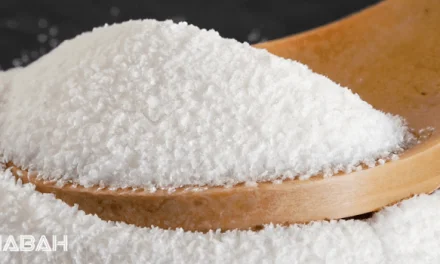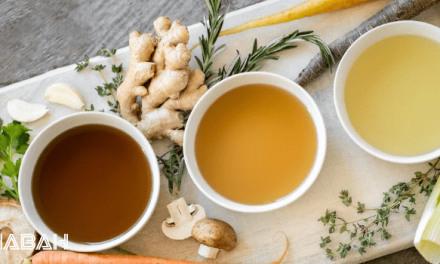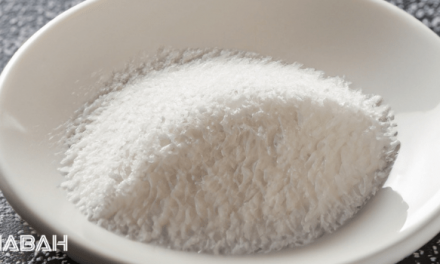Gochujang is a beloved Korean fermented condiment that has recently exploded in popularity worldwide. But there has been some uncertainty around whether this spicy chili paste is permissible for Muslims to eat. So the question arises: is gochujang halal?
“Gochujang” is the Korean word for chili paste. It is a thick, sticky condiment made from red chili peppers, glutinous rice, fermented soybeans, and salt. The mixture is left to ferment in traditional earthen pots for months, developing a complex savory and slightly sweet flavor profile.
Gochujang has been a staple in Korean cuisine for centuries, used to add a savory, spicy kick to dishes like bibimbap and bulgogi. But as this condiment goes global, Muslim consumers want to know: does it comply with the dietary restrictions of Halal?
Halal foods must be:
- Free of pork and alcohol
- Prepared according to Islamic law
- Made with animals slaughtered in a ritual manner
So does gochujang make the cut? Let’s explore the ingredients and manufacturing process behind this Korean staple.
Background on Halal Foods
Halal dietary laws are a key part of Islamic tradition for Muslims around the world. But what exactly makes a food halal?
“Halal” is an Arabic word meaning “permissible or lawful”. For a food to be considered halal:
- It must not contain pork or pork by-products. This is because pigs are considered unclean in Islam.
- Alcohol is prohibited, as intoxicants are forbidden in the faith.
- Any meat must come from animals like cows, sheep, goats, and chickens that are slaughtered in a ritual manner known as zabihah. This involves killing by hand and blessing the animal.
| Type of Food | Halal Status | |-|-|
| Pork and pork products | Haram (non-Halal) | | Alcohol | Haram (non-Halal) | | Ritually slaughtered meat | Halal | | Vegetables, grains, dairy, etc. | Halal |
Muslims who closely follow religious guidelines will look for assurance that imported foods like gochujang are halal-certified and do not violate any of the above criteria. This provides confidence that their diets conform to Islamic law.
Gochujang Ingredients
When examining if gochujang is halal, the first step is looking at the main ingredients it contains.
Gochujang is made from:
- Chili peppers – Provides the red color and spicy kick. Usually Korean red chili powder.
- Glutinous rice – Softens the texture and adds sweetness. Also called sticky rice.
- Fermented soybeans – Contributes flavor depth. Meju or doenjang are often used.
- Salt – Used for preservation and flavor enhancement.
Some additional ingredients like honey or sweet rice flour may be added to balance acidity and sweetness.
Ingredient Halal Status Chili peppers Halal Glutinous rice Halal Fermented soybeans Halal Salt Halal
Notably absent from the main ingredients list are any pork products or alcohol – both clearly forbidden according to halal laws. This is a positive sign that gochujang itself may be permitted for Muslim diets. But the manufacturing process also needs to be considered.
Manufacturing Process
Now that gochujang’s ingredients look to be halal-friendly, what about how it is made?
The traditional process for making gochujang involves several steps:
- Mixing – The rice powder, soybean paste, chili powder and salt are combined.
- Fermenting – The mixture is left to ferment in clay pots outdoors for months. This develops the unique flavor.
- Aging – The paste ferments further for a few months to a year. This deepens the color and flavor.
The aging time and earthenware pots result in complex umami, sweet and spicy notes you can’t replicate quickly.
However, modern commercial production may differ from the months-long traditional method. Shortcuts like replacing clay pots with stainless steel vats are sometimes used to increase efficiency and output. Whether these changes impact the halal status depends on the specific processes used.
| Production Method | Potential Halal Concerns? |
|-|-| | Traditional (fermented for months in clay pots) | No major concerns | | Faster modern process | May need inspection depending on shortcuts used |
While traditional methods appear halal-compliant, some Muslims argue that certain modern shortcuts could impact permissibility unless production facilities are verified.
Certification
Given the questions around modern gochujang production methods, some brands have chosen to pursue formal halal certification.
Halal certification involves having an approved Islamic organization inspect the ingredients and production processes. Certifiers verify there is no contamination with pork or alcohol, and that equipment is cleaned according to halal standards.
Obtaining halal certification provides assurance to Muslim consumers that commercially produced gochujang conforms to Islamic dietary laws. Some brands that have obtained halal certification include:
- Mother’s Best Gochujang
- Seoul Shik Pae Gochujang
- Chung Jung One Gochujang
Gochujang Brand Halal Certification Mother’s Best Yes Seoul Shik Pae Yes Chung Jung One Yes
Pursuing third-party halal certification can help remove any doubts about gochujang’s permissibility for Muslims. The certification process validates the production methods.
Opinion of Muslim Scholars
In light of the information on gochujang’s ingredients and production, what do Islamic religious authorities say about its permissibility?
The majority opinion seems to be that gochujang is halal:
- Scholars have not identified any prohibited ingredients in gochujang itself.
- The fermentation process does not invalidate halal status according to most.
- No alcohol is produced through fermenting gochujang.
However, a minority argue that the modern fermentation process may require closer inspection:
- Shortcuts like using yeast instead of natural fermentation are questionable to some.
- Contamination could occur in non-dedicated facilities.
- Lack of oversight for mass production raises concerns.
Scholar Opinion View on Gochujang Majority Permissible Minority Require inspection of production
While a minority voice some concerns, most Muslim religious authorities seem to agree that gochujang itself is permissible to eat. But halal-certified options provide added assurance.
Availability of Halal-Certified Gochujang
While gochujang appears to be halal by default, there are options available certified as such:
A growing number of gochujang brands are obtaining halal certification to cater to Muslim consumers:
- Mother’s Best Gochujang
- Seoul Shik Pae Gochujang
- Chung Jung One Gochujang
- and more
These options allow Muslims to enjoy authentic gochujang flavor without compromising their values:
- Gives peace of mind that production methods have been verified.
- Shows respect and consideration for Islamic dietary restrictions.
- Meets demand for halal Korean food products.
Brand Halal Certifying Body Mother’s Best IFANCA Seoul Shik Pae MUIS Singapore Chung Jung One JAKIM Malaysia
With certified options now available, Muslims can confidently experience the unique flavors of gochujang. This is a positive sign of growing halal food access worldwide.
Frequently Asked Questions – Is Gochujang Halal
Yes, Gochujang is generally considered halal as it does not contain any haram (forbidden) ingredients such as pork or alcohol. However, it is always advisable to check the specific ingredients of the product to ensure it complies with halal dietary laws.
What is Gochujang?
Gochujang is a traditional Korean chili pepper paste made from red chili, glutinous rice, fermented soybeans, and salt. It’s a savory, spicy, and slightly sweet condiment that is used as a base in various Korean dishes.
What are the ingredients of Gochujang?
Generally, Gochujang is made from red pepper powder, glutinous rice, fermented soybeans, salt, and sometimes sweeteners like sugar or honey. Some variations may include additional ingredients for flavor and texture.
How can I use Gochujang paste?
Gochujang paste can be used as a marinade for meats, seafood, or vegetables, as a seasoning for stews, soups, and stir-fries, or as a dipping sauce for snacks and appetizers. It adds a spicy, umami flavor to a wide range of dishes.
What is the heat level of Gochujang?
Gochujang is known for its medium to high level of spiciness. The heat can vary depending on the brand and type, but it generally falls within the range of medium to hot on the spiciness scale.
Are there any variations of Gochujang available?
Yes, there are different varieties of Gochujang available, ranging from traditional, artisanal versions to modern, mass-produced options. Some variations may include added ingredients like garlic, ginger, or additional spices for unique flavor profiles.
Is Gochujang sauce the same as Gochujang paste?
Yes, Gochujang sauce is essentially a thinned-out version of Gochujang paste. It is often used as a ready-to-use condiment or flavoring for various dishes, offering the same signature spicy and savory taste in a more liquid form.
Can Gochujang be used in Islamic cuisine?
Yes, Gochujang can be used in Islamic cuisine, especially in dishes where a spicy and savory flavor profile is desired. When incorporating Gochujang into Islamic dishes, it’s important to ensure that all other ingredients used adhere to halal dietary guidelines.
What are the health benefits of Gochujang?
Gochujang contains beneficial components such as l-glutamate, potassium, and citric acid, which contribute to its unique flavor and potential health benefits. In moderation, it can be a flavorful addition to a balanced diet.
Where can I purchase Gochujang?
Gochujang can be found in Asian grocery stores, specialty food markets, and online retailers. It is typically available in jars or tubes, and there are also various brands offering Gochujang products with different levels of spiciness and flavor profiles.
Can I use Gochujang in my halal dishes?
Definitely! Gochujang can be a great addition to your halal dishes. Its spicy and savory flavor can enhance the taste of various recipes, including rice dishes, stews, stir-fries, and more.
Are all brands of Gochujang halal?
No, not all brands of Gochujang are necessarily halal. Different brands may have different ingredients and production methods. It is recommended to look for halal-certified brands or check the ingredients list for any haram substances.
What ingredients are used in Gochujang?
Gochujang typically includes ingredients such as hot pepper powder, glutinous rice, fermented soybean powder, salt, syrup, and sometimes other flavorings like garlic or onion. However, the specific ingredients may vary slightly between different brands and recipes.
Can I make halal Gochujang at home?
Yes, you can make halal Gochujang at home by carefully selecting halal-certified ingredients and following a recipe that avoids any haram substances. There are several recipes available online that cater to halal dietary guidelines.
Is Gochujang suitable for Muslims?
Yes, Gochujang can be suitable for Muslims if it meets the halal requirements. As mentioned, it should be made with halal-certified ingredients and free from haram substances.
Conclusion
In summary, the evidence suggests gochujang is generally halal-compliant:
- Gochujang’s core ingredients of chilies, rice, and soybeans are all permissible.
- The traditional fermentation method does not invalidate its halal status.
- Most Muslim religious authorities consider gochujang to be halal.
However, there are minority concerns over some modern production methods. Obtaining halal certification can provide added assurance:
- Verifies no contamination or alcohol is used in production.
- Validates that equipment is cleaned per Islamic standards.
- Signals respect for Muslim dietary needs.
Ultimately, Muslims can enjoy authentic gochujang flavor without compromising their values:
- Halal-certified options from brands like Mother’s Best are now available.
- Shows the demand for halal Korean cuisine is growing.
- Allows fuller participation for Muslims in global food culture.
The mainstream view seems to be that yes, gochujang is halal. But those wanting extra confirmation can look for halal-certified gochujang.





